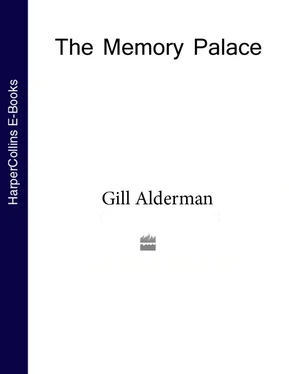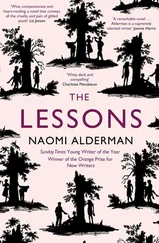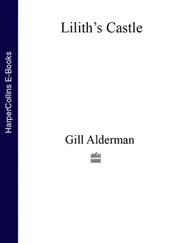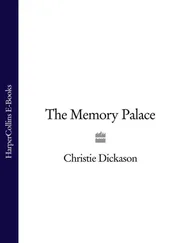She was speaking in French to a woman, something about a gypsy, ‘la romanicelle’ , the Romany woman: she was asking the way to Helen’s house. In Avallon, apart from one hesitant ‘Merci’ , she had let him do all the talking and to hear her now, with laughter and complicity in her voice, fluently conversing, shocked him more than had her precocious sexuality. Of course she would, with a father resident in the country. A cup of black coffee stood on the counter in front of her and, as he came in, she turned to him and smiled and the French woman began to prepare another coffee.
‘You haven’t far to go,’ said Alice in English. ‘It’s the old presbytery and it’s just by the church.’
‘Helen’s house?’
‘Yes. The fortune-teller’s house. She is well-known here – ask Madame.’
He spoke to the woman: ‘Good day, Madame,’ he said in French. ‘She tells me you know Helen Lacey – la voyante?’
The woman, who had a broad, strong face, turned and looked him in the eye. ‘Hélène, Mme Dinard, yes,’ she said. ‘The girl is correct. Yes, the fortune-teller. A suitable profession for a gypsy, but – she owes everything to that man.’ She put his cup of coffee on the counter.
He lifted the cup and drank gratefully, feeling the warmth of the liquid flowing through him and the ache ebbing from his hands.
‘She is married?’
‘You can call it marriage.’
‘To Georges Dinard?’
‘Yes. The butcher, there – the horse butcher.’
Alice gently touched him. ‘You go,’ she said, ‘and I’ll wait here. It will be better.’
‘Wait in the car if you have to. It isn’t locked. Here –’ He gave her a two hundred franc note. She suddenly hugged him and kissed him on the lips.
‘Thank you,’ she said. ‘And, by the way, I am seventeen – last April.’
He left her in the café and walked swiftly across the square and along the dappled street, where lime trees grew in dry beds between the pavement and the road, until he came to the church. That ‘Thank you’ of hers – it had been like a farewell, a kind of ‘Thanks for everything’. He had no idea if she were now telling the truth about her age.
The church looked abandoned. It was neglected and weeds grew on the roof. There was absolutely no sound, no notices, no indication that it was ever used. The door was shut and locked. He’d forgotten this was usual. The key would be lodged in some obscure house miles away. He thought of entering the church. Not to pray, God no, but as an interval, a break in the journey between Alice and Helen.
Beyond the church, a pair of scarred stone pillars marked the entrance to the Old Presbytery. He wondered where the priest lived now; perhaps, as in his own village, in a new house.
The gates were open; sagged, in fact, on lax hinges against dark evergreens. He walked up the short pathway to the front door and lifted his hand to the bell, noticing as he rang it how the paint lay flaked and twisted on the wood, weathered into many shades of green. He felt a hot quietude swell and billow towards him from inside the house, a silence made absolute by the noise of the bell. If, after all this, there was no one at home! He listened. He waited; glanced to right and left. Like those in the square, these tall windows were closely shuttered.
Treading carefully, like an animal which wishes to hide, he crept to the nearest pair of shutters and pulled on one of them. The window behind it was open and, as he peered in, the smell of the house came to meet him, a blend of dusty warmth, stale incense, roses and her perfume, ‘Sortilège’. The dusky room was crowded with large pieces of furniture and he felt a child’s dread: some other place that he remembered intervened between the room before him and his present intentions. His mother’s house had also been crammed with massive pieces of oak and mahogany; but here were also statues, two gilded and oddly decadent humaniform lamp-bearers, an Ethiopian dwarf and an Egyptian hawk-headed god; and a bronze nude who concealed her pudendum with a caressing hand. The rose-scent came from a bowl of spent and faded beauties whose petals lay scattered on the floor.
He withdrew; pushed the shutter to. Perhaps at the back of the house –
There was no one in the garden at the rear. A mulberry tree filled up most of the yellowed lawn; the flowers in the long beds drooped in the heat and roses scrambled, overtopping a wall. He saw that a part of the area he had first taken for scorched grass was a yellow towel, and walked up to it. Someone had been sunbathing there: a tube of sun cream lay by the towel and the towel itself was spotted with what at first he took for blood, the juice of the mulberries. For a moment he considered the pleasures of eating ripe mulberries in such an advantageous position – they might drop into a waiting mouth – then, looking up into the tree, saw that the mulberries were still green. The stains, then? He shrugged inwardly, turned and walked toward the house.
A porch with benches in it shaded the back door and on one of them stood a red-splashed mixing-bowl. The door itself was open; beyond it a shadowy hall with the inside of the front door at the far end, stairs, open doors to left and right. Guy raised his hand to knock.
He saw Daniel, his second son, walking towards him and was bewildered. Reality intervened; comprehension.
‘Dominic,’ he said. ‘You are Dominic?’
(What would he say, the tall fair-headed boy – Helen’s son – his son – the true love child?)
‘Hi, Dad!’
Guy was shocked: the accent was American. But now the boy was close. What should he have said: ‘My son, my son!’ with tears – of joy? He held his arms out in a gesture of welcome. This boy was taller than Daniel – already. And two years younger? His brain made frantic calculations and Dominic, smiling from Helen’s fathomless brown eyes, walked into his embrace. Kisses, one, two, three – he was almost French. Dominic smiled properly, his teeth virginal and even against his year-round skier’s tan.
‘Mom said you’d be here today,’ he said. ‘She was in the yard, in the garden.’
Guy, overcome at last and assailed by the lost legions of the past, spoke carefully.
‘I am very glad to see you.’
(He has my nose and build, he thought. The rest is Helen.)
‘Great. No problem.’ At least he sounded like a normal teenager. ‘Would you like a drink?’
‘Er, no. I don’t think so.’
‘Later then? You want to see Mom.’
‘I do want to see your mother. Very much.’
‘And you’re worried. I’m what you hoped for, but I’m not. I learned my spoken English from Georges. He was in Chicago for a while.’
‘Georges?’
‘Ma’s Lilo.’
‘What?’
‘Live-in-lover. You know.’
‘Oh. Yes. The butcher.’
‘That’s him, the horse-butcher. She’s in the vardo . You can go there if you like. It’s in the orchard, there’s a gate in the garden wall. See you later!’
A fleeting memory of Alice Tyler jumped at him, and was gone. He forgot her. He was wholly lost, as helpless as he had been years ago, when he had first seen Helen on a country bus and, dismounting at her stop, had followed her – home, as he thought, but actually down a long and winding lane which led eventually into the secretive valley of the little river Char. She had stopped on the pack-horse bridge and waited for him –
Soon afterwards the worst and best ten months of his life had begun.
Now, seventeen years later, he was walking to her through a sunlit afternoon garden in France.
He had wanted to fuck her there and then, in the February snows beside the river, but she, taking him by the hand, had led him to the black-painted vardo in the old cattle-drift, had made him her apprentice. Had made him her slave. It wasn’t till June –
Читать дальше












